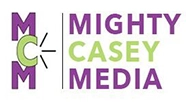I’ve been fascinated by the Wikileaks/Afghan Papers story since it started to gain traction in June 2010. One of my gurus, the endlessly entertaining and thought-provoking Clay Shirky, posted a New Year’s Eve gift on his blog looking at the differences between the Pentagon Papers case and its 21st century doppelganger, Wikileaks.
Clay’s most cogent point – and he has many – is this one: there’s a big difference between “international” and “global” when it comes to actors in this little drama. The example he uses to illustrate this point: the difference between making LSD and cocaine. LSD can be made in a lab anywhere, therefore it’s global. As global as the distribution of cocaine is, it’s still tied to a place: the South American mountains where coca leaves are grown.
Bradley Manning, whose violation of the UCMJ means he’s screwed for at least a couple of decades, make him very much a “local” boy. Julian Assange, since he holds a passport – and all of us, in order to move around the globe, gotta have one of those – might be able to maneuver more easily than Manning, but he’s still under the flag of Australia. If they choose to either arrest him or revoke his citizenship…well, he’s screwed, too, since he’s just “international.”
Wikileaks, however, is the essence of “global” – servers all over ever’where, no one’s officially in charge, even if Assange is the creator and face of Wikileaks – so how on earth will anyone, even the US government, be able to prosecute a case against it?
Plenty of entertainment value in this story, still unfolding.
And that’s my story, and I’m stickin’ to it…



